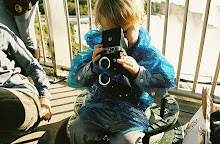The Dirty Mac

Performance 1970 
Watching my 15 month-old niece, my sister-in-law, and my brother sit transfixed before a peaking Rolling Stones Rock and Roll Circus Mick Jagger as he chicken-strut, floor-slithered, flirted with John Lennon, and strategically effected an awkward striptease by pulling off his tight red top in order to reveal a fake devil/oni tattoo and an assortment of other demonic scribblings on his little trunk, i remembered my own complete attentiveness during my first surprised "afterparty" viewing of Nicholas Roeg's 1970 exploitation of Jagger's shapeshifting allure, the profligate sex/gender crimeworld fantasia, Performance, ten years ago.
As most of my fellow cultural studies-leaning grad student peers tend to mine the ripe genres of hip-hop, punk, riot grrl, and contemporary Le Tigre-esque bands to illustrate their queer theoretical problematizing, i have yet to snuggle up for an end-of-the-semester paper presentation on Mick and Keith or, even more appropriately for students of that ever-expanding "discipline," performance studies, on this difficult to recount film, Performance.
Bowie, Lou Reed, Freddy Mercury, Sweet and Slade are the obvious seventies go-to's for glam and androgny rock performance critiques, the Stones had a cockier legacy filled with oodles of lazily-sired offspring and supermodel affairs. But Jagger, the tiny "little faggot" confusing the Angels in Gimme Shelter, prefigured such later omni-sexual heartthrob's as Brett Anderson, about whom a male rock critic once observed, "I didn't know if I wanted to be him, or to fuck him."
But the now-knighted sir-Mick is the classic case of "subversion" gone "consumption," right? That riskiness and discomfort, Jagger in fedora and scarf begging all of Altamonte to just cool it and love each other became the face of Hilfiger and tabloid paternity tests, so can his pockets of transgression even matter anymore?
Here's one answer: My brother Jesse and i, a few hours before our couch ogling, had sat on the floor in his daughter's nursery while she took every book off her shelf and licked each one to test its content. We talked about our parents and our weird but lucky childhood. Before Dad traded the union for the golf course and mom swapped grass and macrame for nursing school and lesbian communes, our country home was full of people. Our playmates were the children of blue-collar hippies who climbed poles and ran leather stores during the day and just hung out at night. Dad 's hair was just as long as Mom's, inspiring me to call him 'George Washington' until he chopped off his ponytail. And by the time we came around they were listening to the Band and John and Yoko, but they were mellow.
They, along with the rest of their friends, were from Miami, and they were cool. When we first moved to the north Floridian backwater town we grew up in, the kids at the new Publix would stare, open-mouthed, at our mysterious parents and our bellbottoms. i guarded my middle name (Sunshine) from classmates as if it were an ugly planter's wart. But our parents knew more than we did, and when my mom painted the mail box with roses and my dad tended the honeysuckle that grew over the chicken coop, they thought their details helped them move away from the religion and the paranoia they'd been raised on. For some reason, Jesse and i see some of this in our obsessions with the Stones and Roxy Music and Bowie, figures we didn't exactly grow up on, but ones we imagine altered our parents and their friends.
For a while, masculinity was different. And even though it makes no difference anymore who wears the pants or the long hair, when i watch both of my brothers with their little girls i see that some of that softness has rubbed off on the men they grew up to be. They're calm. They change diapers. They make dinner. They love their wives. They don't make "queer" jokes. And one of them enjoys watching the young Rolling Stones just as much as his wife, sister, and baby girl do.


<< Home